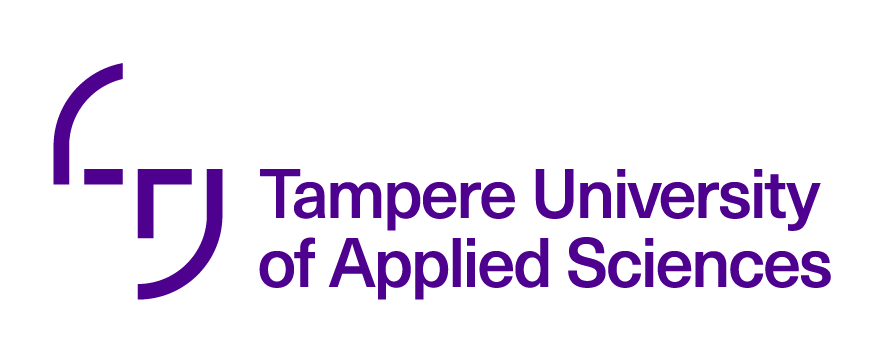Evaluation of Quality and EffectivenessLaajuus (5 cr)
Code: NY00FY73
Credits
5 op
Objectives
Student:
- Is able to define the concept of quality and its dimensions
- knows the principles and process of quality management
- is able to define the concept of effectivity
- is able to independently design quality assurance process and analyze it critically
- knows and identifies the possibilities and limitations for measuring effectivity
Content
Contents
Definitions of quality
Quality management, process, and methods
The concept of effectivity and impact and related concepts
The impact evaluation process and its phases (objects, solution, output, result, impact)
Effectiveness evaluation as part of the decision-making process and quality evaluation process as part of the action
Assessment criteria, satisfactory (1-2)
The student knows the principles of quality assurance. The student is able to design the effectiveness evaluation process and its phases and knows the key methods of evaluation in their own work field. The student recognizes the importance of quality assurance and effectiveness evaluation as part of the decision-making process and action.
Assessment criteria, good (3-4)
The student is able to apply the principles of quality assurance. The student is independently able to design the effectiveness evaluation process and its phases and knows the key methods of evaluation in their own work field. The student is able to analyze the meaning of quality assurance and effectiveness evaluation as part of the decision-making process and action.
Assessment criteria, excellent (5)
The student is able to apply and analyze the principles of quality assurance. The student is able to design and develop the effectiveness evaluation process and its phases and is able to apply and develop evaluation methods in their work in their own work field. The student is able to argue the use of quality assurance and effectiveness evaluation as part of the decision-making process and recognizes the importance of quality assurance and impact assessment as part of decision-making and can integrate evaluation into activities.
Enrolment period
22.11.2023 - 15.09.2024
Timing
22.01.2024 - 01.11.2024
Credits
5 op
Virtual portion
5 op
Mode of delivery
Online learning
Campus
TAMK Main Campus
Teaching languages
- English
Seats
20 - 60
Teachers
- Tuula-Maria Rintala
- Päivi Heimonen
- Merja Sinkkonen
Person in charge
Merja Sinkkonen
Groups
-
24YAMKYlempi AMK, yhteiset opinnot
Objectives (course unit)
Student:
- Is able to define the concept of quality and its dimensions
- knows the principles and process of quality management
- is able to define the concept of effectivity
- is able to independently design quality assurance process and analyze it critically
- knows and identifies the possibilities and limitations for measuring effectivity
Content (course unit)
Contents
Definitions of quality
Quality management, process, and methods
The concept of effectivity and impact and related concepts
The impact evaluation process and its phases (objects, solution, output, result, impact)
Effectiveness evaluation as part of the decision-making process and quality evaluation process as part of the action
Assessment criteria, satisfactory (1-2) (course unit)
The student knows the principles of quality assurance. The student is able to design the effectiveness evaluation process and its phases and knows the key methods of evaluation in their own work field. The student recognizes the importance of quality assurance and effectiveness evaluation as part of the decision-making process and action.
Assessment criteria, good (3-4) (course unit)
The student is able to apply the principles of quality assurance. The student is independently able to design the effectiveness evaluation process and its phases and knows the key methods of evaluation in their own work field. The student is able to analyze the meaning of quality assurance and effectiveness evaluation as part of the decision-making process and action.
Assessment criteria, excellent (5) (course unit)
The student is able to apply and analyze the principles of quality assurance. The student is able to design and develop the effectiveness evaluation process and its phases and is able to apply and develop evaluation methods in their work in their own work field. The student is able to argue the use of quality assurance and effectiveness evaluation as part of the decision-making process and recognizes the importance of quality assurance and impact assessment as part of decision-making and can integrate evaluation into activities.
Assessment scale
0-5
Teaching methods
HOW TO STUDY (independent, online)
This course includes 5 parts, 1, 2, 3, 4. and 5. You're supposed to carry out these parts in order.
Part 1: Instructions and a pretask essey. (0,5 credits).
Part 2: Quality, reading scientific articles and passing the tests (0.5 credits)
Part 3: Quality assurance in the students own work field, studying quality standards and protocols, writing learning diaries and having discussions. (1 credit)
Part 4: Evaluation, reading scientific articles and passing the tests (0.5 credits)
Part 5: Evaluation of Effectiveness: Implementing a work-life based project (2,5 credits).
The course is in english and we use english in our tasks and conversations. However, if you are studing your Master´s degree in finnish, you can write the project report in part 5 in finnish.
You can study at your own pace. Notice that 1 credit means 27 hours of work.
Teachers check the tasks three times on this semester: 5.4.2024, 3.5.2024, 4.10.2024, 1.11.2024. (You get your evaluation and credits in 3 weeks)
Student workload
You can study at your own pace. Notice that 1 credit means 27 hours of work.
